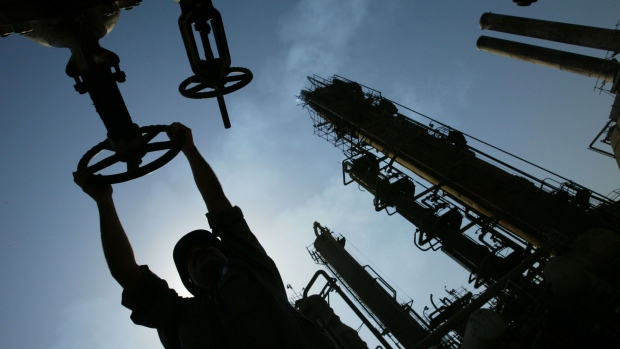Jun 3, 2023
Iraq Is in Talks With Turkey to Resume Oil Flows From Ceyhan
, Bloomberg News

(Bloomberg) -- Iraq is in talks with Turkey to resume northern oil exports via Ceyhan, Iraqi Oil Minister Hayyan Abdul Ghani said in a televised interview on Rudaw channel.
“There are talks with the Turkish side to resume pumping and we are hoping to receive soon a Turkish delegate to resolve this issue,” the minister said.
Turkey closed a pipeline running to Ceyhan after Iraq in March won a nearly nine-year-old arbitration case at the International Chamber of Commerce. OPEC’s second largest producer claimed in the case that Ankara violated a 1973 pipeline transit agreement by allowing crude from the Kurdish region to be exported without Baghdad’s consent.
The latest talks are going well and exports will restart shortly, Abdul Ghani said. Turkey didn’t agree to a request from Iraq to resume shipments last month.
Read more: Turkey Official Nixes Idea Iraqi Oil Is About to Flow Again
Iraq’s exports dropped in May to their lowest in nearly two years as the pipeline from the country’s northern fields remained shut for a second full month.
Abdul Ghani said there are indications prices will be stable at current levels before going up in the coming months. The halt of around 500,000 barrels of crude supplies per day from the country’s northern fields in Kurdistan and Kirkuk via Ceyhan to global markets had a positive effect on price stability and increased prices, he added.
Iraq is also keen to diversify its export terminals but the Kirkuk-Baniyas export pipeline with Syria is not being considered as an alternative to the Ceyhan pipeline at the moment, the minister added.
The country is committed to Paris Agreement pledges to stop natural gas flaring — the burning of natural gas in the process of extracting oil — by 2030, Abdul Ghani said. The oil ministry is keep to accelerate capturing the gas for power production, thereby reducing the country’s large gas imports from Iran.
“We can’t continue importing gas while the gas being produced in the oil fields is being burned,” he said.
Once an integrated gas development project with France’s Total Energies SE starts, gas flaring from five fields in the south will be stopped within five years. The country needs between 5-7 years to reach self-sufficiency in gas production, Abdul Ghani said.
©2023 Bloomberg L.P.


